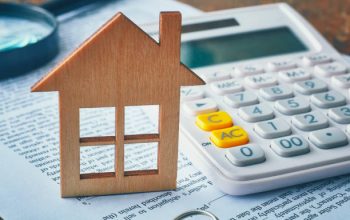According to PWC’s Global Emerging Trends in Real Estate 2018 report, if you are interested in becoming a property developer, you will be joining a field that is constantly changing. According to a European investment manager in report, “Real estate has continuously changed. People need to have somewhere to live, and those needs change over time, so it serves a purpose. The demands are increasing in some industries while decreasing in others. Effective investors are able to anticipate these changes and stay ahead of them.
Table of Contents
Pros And Cons To Become A Property Developer
- Positives – the open trade policy with a relatively stable domestic market, as well as the country’s highly developed financial, legal, communications, and transportation sectors. A growth-friendly environment should be created by these elements.6 Additionally, there is a strong push to convert inner-city office buildings into residential units for the development of institutional rental housing stock. These range from the simplest—like residential construction in the Maboneng Precinct—to the most elaborate, like The Onyx in Cape Town, which converted Nedbank’s headquarters into a residential and hospitality development.7
- Challenges – The three problems of poverty, unemployment, and income inequality still need to be solved in South Africa.8 Economic downturns have caused a more moderate stance in the real estate development industry because developers are more likely to invest in reinventing existing property than in buying new land.
What Does A Real Estate Developer Do?
A real estate developer oversees a variety of tasks and operations, including creating business plans and building facilities. One definition of property development is “the continual reconfiguration of the built environment to meet society’s needs”.12 As a developer, you put money, skills, time, and talents into improving the condition of the land.
How To Become A Property Developer?
1. Acquiring A Track Record
In order to convince a lender to finance your first project, you must first establish the credibility necessary for property development.
Getting experience that contributes to a track record before attempting to borrow is the best way to get around this issue. You gain some credibility if you work for a reputable real estate developer. If you’re an intelligent, committed, and reliable employee, the developer you work for might partner with you on your first project, giving you the funding credibility you need.
2. Consider Finding A Partner
Consider looking for a trustworthy small-scale residential developer to collaborate with on a project the two of you would co-finance, with you acting as a junior development partner and picking up skills on the job if you have the money to start with.
3. Join A Housing Nonprofit
Join one of the many nonprofits focused on affordable housing to gain the experience you need if property development is a retirement project for you and you have retirement income to support you while you get started. Although Habitat for Humanity is the most well-known, most communities are home to a number of groups with comparable goals.
Without experience, you might still be able to find funding sources, but they might be limited to private loans and angel investors.
4. Developing A Plan
You must advance the project to a stage where it is appealing to others before approaching funding sources. Most of the time, small developers start out with residential projects consisting of one or two houses.
Determine the number of available vacant lands for sale, perhaps six to twelve different properties, because getting financing may take several months, during which time the property you want to buy might have been sold. Consider some of these as backups that are readily available, and create detailed plans for two or three of them. For each property, thoroughly research any zoning restrictions and unique conditions, such as utility and access easements.
5. Research The Local Property Market
Your potential lenders will feel more confident if you can provide more details. Research “comps” – other similar, recent property sales – to establish that the sales prices for your lots are reasonable. Create one or two straightforward graphs that show the percentage change in neighborhood property values over the previous three to five years for each property. Create a housing plan for each of your two or three main properties based on the types of housing that sell best in these areas. These ought to have early sketches that help your potential lenders visualize the project.
6. Prepare Building Cost Estimates
It’s crucial to prepare building cost estimates. Materials, labor, overhead, and profit should also be included, in addition to any fees or permits required by the planning and building departments and a 15% contingency fund. It’s a good idea to have each potential plan reviewed by your community’s planning and building departments when you’re doing cost research.
7. Rehearse Your Pitch
Practice giving a pitch for your plan to lenders as the last step in getting ready to do so. You need to be able to succinctly and persuasion describe the project. Spend less time on the details; if they’re still interested, you can go into more detail. It should only take a few minutes for the opening pitch. Lenders will have more confidence that you put in the time to develop the property at a profit if you can confidently recite facts and dollar amounts off of memory.

8. Private Lenders And Angel Investors
Because being funded by traditional lenders is especially difficult when you’re beginning to develop the property, you may look first to private lenders and “angels” – wealthy individuals who take a creative interest in property development but are uninterested in doing it themselves. These people frequently have an interest in the social benefits of these initiatives, like funding for affordable housing. Since affordable housing is easier to construct and might make it easier to obtain government funding, this is beneficial in a number of ways.
Other potential lenders include friends and family, particularly prosperous older people who might be looking for ways to boost and diversify their retirement income.
9. Government Funding Information Sources
Small-scale affordable housing projects may be funded through a variety of federal and state affordable housing initiatives. Here are a few of the numerous sources of information that are run by the government, businesses, and nonprofits.
- “Attracting Infill Development in Distressed Communities: 30 Strategies” describes the need from the community viewpoint and gives you a good idea of the kinds of projects communities are looking for and how they plan to fund them.
- “Property Development for Beginners” is a good introductory book.
- “Eight Practical Property Development Tips” and “How to Finance Property Development” both cover funding, including some funding for small-scale projects from a professional funding organization.
- “HOME Investment Partnerships Program” is just one of much available Affordable housing is funded by HUD programs. Visit the Housing and Urban Development website for more information.
- “Grants Information: Finding & Applying for Grants” is an Article published by HUD outlining grants accessible via the Grants.gov website.
- “Federal Grant Sources,” another article by HUD describes a variety of federal grants for various uses, some of which are pertinent to financing small-scale development
Property Development Funding Options
Your first small development project can be funded in a variety of ways, including commercial financing or unofficial means.
1. Release Equity From Your Home
Equity release will enable you to release funds that are currently constrained by your home so that you can use them for your first development project. Make sure, though, that you’re willing to accept the possibility of losing this money in the event that your development is not successful. This type of borrowing will also come with higher interest rates, which can quickly add up.
2. Commercial Finance
Property developers have access to a wide variety of commercial financing options. To discuss your funding options, talk to a financial advisor who specializes in the real estate market. Your current financial situation will have an impact on this.
3. Informal Loans
Consider talking to relatives or close friends about a loan or investment if they have a lot of extra cash and might be interested in real estate development. It’s important to be aware of the age-old warning against combining work and pleasure. This is only a viable option if you are certain that your relationships are solid enough to withstand the stress and uncertainty that could potentially arise from property development. Furthermore, make sure your friend or relative is aware of the dangers present.
4. A Joint Venture
There are different kinds of joint ventures (JV), but they all entail two or more parties working together to finance a business. A JV will enable you as a novice developer with limited resources to take advantage of those of an established real estate professional or professionals. Additionally, you might have access to land that you were unable to acquire on your own. This is a low-risk way to increase your knowledge and skills while securing the funding you need to get started. To determine which type of JV is best for you—a contractual development agreement, a private limited company, a partnership, or a limited company—speak to a financial advisor with experience in the property development industry.
5. Commercial Mortgages
Applying for a commercial mortgage is very similar to applying for a mortgage to purchase a home if your main focus is on developing commercial properties like shops and warehouses. This is a practical method of spreading out the cost of buying a development property. Finding this kind of funding, though, is more challenging for startups.
6. Buy-to-let Mortgages
A buy-to-let (BTL) mortgage is a good way to get the money you need to get started if you’re starting small with one property, which is a smart idea. Look around for the best deals. You will need to find additional funding if your plans are more ambitious.
7. Auction Finance
The best place to find a deal is at auctions. Many homes are sold at auction because they need a lot of work or for another reason would be difficult to sell using the traditional estate agent route. This might be worth looking into if you’re looking for cheap property for your first development. You can set up a loan to purchase a property at a discount price because some lenders specialize in auction finance.
8. Bridging Loans
Both buying and remodeling a property are possible with bridging financing. These short-term loans can be used to help you “flip” your first development project as quickly as possible. The money earned can then be used to pay back the loan.
New developers have access to a variety of financing options for real estate development. If you own assets like a second home, you can also raise money by selling them.
By offering your clients a guaranteed, risk-free sale of their existing property once your business is up and running, HBB Solutions can assist you in attracting buyers and maintaining the momentum of your development plans.
How To Invest In Property Development
The sector of real estate development is constantly changing. Here are steps to consider in your future property development investment strategy:
- When evaluating a property, take sustainability and technology into account. Renters and buyers prefer “green” buildings and are prepared to pay more for them.33 Similar demands are made regarding the design of homes and workplaces including lots of windows and natural light. You may experience a “brown discount” and possibly a shorter operational life if your premium office and residential buildings are not technologically or sustainably sound.
- Adopt a data-driven strategy. You can have clarity about where and how to invest in real estate if you take a data-driven approach to it. In Seattle, for instance, data was used to predict the three-year rent per square foot with greater than 90% accuracy. They also took into account variables linked to non-traditional data, such as proximity to popular restaurants and retail stores, which explained 60% of the changes in rent
- Select your competition’s venue and strategy. The competition for assets also grows as the economies of the southern hemisphere expand. To stay competitive, concentrate even more on the fundamentals of local knowledge and tenant demand while concentrating on the markets you are well-versed in. For quicker returns and more liquidity, be creative and develop projects that are in line with community needs.



